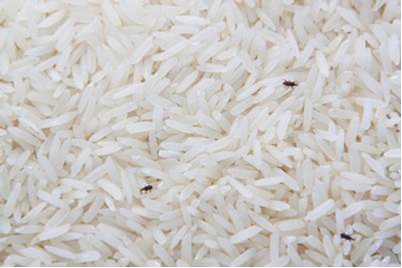Have you ever been to a doctor following a bout of vomiting and diarrhoea which was diagnosed as “stomach flu”?
Gastroenteritis is a condition characterised by the inflammation of the stomach and intestines. It can be caused by infection with bacteria, parasites or viruses. Infection due to viruses is called viral gastroenteritis, which is also commonly known as “stomach flu”.
The most common cause of “stomach flu” transmitted through people or contaminated surfaces/food is Norovirus. Read on to find out more about this virus and what you can do to prevent infection.
What is Norovirus and how does it spread?
Noroviruses are a group of highly contagious viruses that cause vomiting and diarrhoea.
The virus spreads very easily and quickly, and can be easily transmitted by Contact with an infected individual, such sharing utensils with an infected person.
Consuming food or drink contaminated by an infected individual.
Touching contaminated surfaces or objects and then putting unwashed fingers in the mouth, a result of improper environmental cleaning and poor hand hygiene.
The vomit and fecal particles of an infected person is likely to be infectious and can lead to the transmission of virus from person to person. Upon contamination, Norovirus can survive on surfaces (e.g. tabletop, sink, cutlery) for up to two weeks and thus, facilitate transmission of the virus.
There are also some foods, like shellfish, that can harbour Norovirus. Shellfish are filter-feeders, which means that they feed by filtering large amounts of sea water. In areas of improper sewage management, Norovirus can be introduced into the marine environment where shellfish are found. This can result in the accumulation of norovirus particles within the shellfish, presenting a high risk of infection to individuals who consume these affected shellfish. Although all types of shellfish are affected, those which are likely to be eaten raw or under-cooked (e.g. oysters, cockles) are of particular importance.
As such, all imports of live oysters must be from SFA-approved sources and accompanied with a health certificate, to ensure food safety. For frozen oysters and frozen cockles, SFA requires all imports to be accompanied with a health certificate proving that the products come from a source regulated by overseas authorities. Upon arrival, imported food is subject to our food safety surveillance programme, which includes inspection, sampling, and testing.
Symptoms of Norovirus viral gastroenteritis
The common symptoms are nausea, vomiting, diarrhoea, and stomach pain. Other symptoms may include fever, headache and body aches.
When infected with Norovirus, symptoms usually appear 12 to 48 hours following infection and generally last for one to three days. Norovirus infection is generally self-limiting, which means that it usually does not require medication or medical intervention. However, it can cause dehydration especially in the elderly, young children and the immunocompromised individuals. It is important to replenish the fluids lost from vomiting and diarrhoea by drinking plenty of liquids and to seek medical treatment as necessary.
How can we protect ourselves from norovirus infection?
An ounce of prevention is better than a pound of cure. Now that we know norovirus has the potential to spread easily, here are some tips to prevent the transmission of the virus:
Clean and disinfect contaminated surfaces. Disinfect surfaces with disinfectants (diluted chlorine bleach or any disinfectant that is labelled to work on noroviruses) in the event of contamination of any surfaces.
Wash contaminated clothing or linens immediately.
Practice good hand hygiene. Wash your hands with soap and water frequently, especially after going to the toilet, eating/preparing food or changing diapers, since the virus particles can still be present in the body for two weeks after recovery.
Refrain from preparing food or caring for others if feeling unwell. You also should not share food, drinks or utensils with others.
Cook food thoroughly, and wash fruits and vegetables
Norovirus is heat-resistant and can survive in temperatures up to 60°C. Cook food, especially filter feeders such as shellfish, thoroughly prior to consumption.
Wash fruits and vegetables thoroughly before eating
Be aware of the risks of consuming raw food. As a general precaution, vulnerable groups of people, particularly young children, pregnant women, elderly persons, or people with chronic illness such as diabetes, may be more susceptible and should exercise caution by avoiding the consumption of raw food.
About the Author
Herman Teo is a Senior Scientist from the Risk Assessment and Communications Department of the National Centre for Food Science. With a Masters in Food Science and Human Nutrition from the National University of Singapore, his recent work includes the regulatory framework for insects for food and feed, and examining emerging food processing risks.



